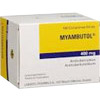Sumycin is an antibiotic medication that belongs to the tetracycline class. It is primarily used to treat various bacterial infections, including respiratory tract infections, urinary tract infections, skin infections, and certain sexually transmitted diseases. Sumycin works by inhibiting the growth and spread of bacteria in the body, thereby allowing the immune system to effectively eliminate the infection.
Sumycin is available in both oral and injectable forms. The oral form comes in capsule and liquid suspension formulations, while the injectable form is typically administered by healthcare professionals in a clinical setting. It is important to note that this medication requires a prescription from a licensed healthcare provider.
Safety Measures
While Sumycin is generally safe and well-tolerated, there are certain conditions and situations where its use may be contraindicated. It is important to discuss your medical history with a healthcare provider before starting this medication to ensure its safety and effectiveness.
Contraindications to taking Sumycin include:
- Hypersensitivity or allergic reactions to tetracycline antibiotics
- Pregnancy or breastfeeding
- Children under the age of 8 years
- Severe liver or kidney disease
- Porphyria (a rare genetic disorder)
Additionally, certain medications and substances may interact with Sumycin, potentially causing adverse effects or reducing its effectiveness. It is crucial to inform your healthcare provider about all the medications, supplements, and herbal products you are currently taking or planning to take during your Sumycin treatment.
Potential Side Effects
Like other antibiotics, Sumycin may cause certain side effects. These side effects are generally mild and temporary, but some individuals may experience more severe reactions. It is important to be aware of potential side effects and seek medical attention if they become severe or persist.
Common side effects associated with Sumycin include:
- Nausea
- Vomiting
- Diarrhea
- Upset stomach
- Loss of appetite
- Headache
- Dizziness
Less common but more serious side effects may include:
- Allergic reactions
- Severe skin reactions
- Yellowing of the skin or eyes
- Dark urine
- Unusual bleeding or bruising
- Persistent nausea or vomiting
- Severe abdominal pain
If you experience any of these serious side effects or any other unusual symptoms while taking Sumycin, it is important to seek immediate medical attention.
Dosage Guide
The dosage of Sumycin will vary depending on the type and severity of the infection, as well as individual factors such as age, weight, and overall health. It is crucial to follow the prescribed dosage instructions provided by your healthcare provider and never exceed the recommended dose.
If you miss a dose of Sumycin, take it as soon as you remember. However, if it is almost time for your next scheduled dose, skip the missed dose and continue with your regular dosing schedule. Do not take a double dose to make up for a missed one.
In the case of an overdose, seek immediate medical attention or contact a poison control center. Overdosing on Sumycin can lead to symptoms such as severe nausea, vomiting, diarrhea, dizziness, and difficulty breathing.
Sumycin Compatibility
Sumycin may interact with other medications or substances, potentially affecting their effectiveness or increasing the risk of side effects. It is important to inform your healthcare provider about all the medications you are taking, including prescription drugs, over-the-counter medications, vitamins, and herbal supplements.
Some medications and substances that may interact with Sumycin include:
| Drug/Supplement | Interaction |
|---|---|
| Warfarin | Increased risk of bleeding |
| Antacids | Reduced absorption of Sumycin |
| Oral contraceptives | Reduced effectiveness of birth control |
| Isotretinoin | Increased risk of intracranial hypertension |
| Methotrexate | Increased risk of toxicity |
These are just a few examples of potential interactions, and there may be others. It is important to consult with your healthcare provider or pharmacist to ensure the safe and effective use of Sumycin while taking other medications or supplements.
Sumycin: Inquiry and Response
-
1. Can I drink alcohol while taking Sumycin?
It is generally recommended to avoid consuming alcohol while taking Sumycin. Alcohol may reduce the effectiveness of the medication and increase the risk of certain side effects.
-
2. How long does it take for Sumycin to start working?
The exact time it takes for Sumycin to start working depends on the specific infection being treated and individual factors. In general, it may take a few days to a week to notice significant improvement in symptoms.
-
3. Can Sumycin be taken during pregnancy?
No, Sumycin is contraindicated during pregnancy. It can potentially harm the developing fetus and affect tooth and bone development. Pregnant individuals should discuss alternative treatment options with their healthcare provider.
-
4. Can Sumycin be taken with dairy products?
It is generally recommended to avoid consuming dairy products, as they may reduce the absorption of Sumycin and decrease its effectiveness. Take the medication at least 2 hours before or after consuming dairy products.
-
5. Can Sumycin cause birth control pills to fail?
Yes, Sumycin can reduce the effectiveness of birth control pills. It is advisable to use additional contraceptive methods, such as condoms, while taking Sumycin to avoid unwanted pregnancy.





Reviews
There are no reviews yet.